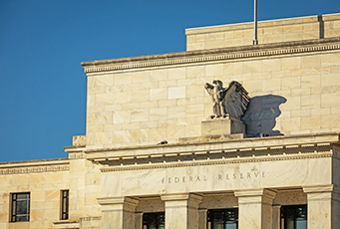When Federal Reserve Chair Jerome Powell began increasing interest rates in early 2022, few economists predicted a resilient economic response. It wasn't a matter of "if" we would be pushed into a recession but how bad the recession would be. Nearly two years into the steepest increase in interest rates in over 40 years, can we now say we've achieved a soft landing? Or is this a delayed economic response with a 2024 recession certain to come?
The Economy Today
The employment rate remains near record highs, with 96.1% of people who want to work finding employment. This week's GDP numbers for Q3 came in at 5.2%, meaning our economy is expanding at a very healthy rate. Personal income and personal spending continue to increase at a moderate rate. Pending home sales are down year-over-year, but that's expected. The housing supply remains low as very few people want to give up their 3% mortgage for a new 7% mortgage.
What Does the Fed Want to See?
To put it bluntly, the Fed wants you to lose your job. It sounds terrible to say, and no Fed chair would ever publicly make this statement, but the more money available for people to spend, the more likely inflation will remain high. If the unemployment rate remains low (currently 3.9%) and everyone has a job, demand for goods and services will continue to increase prices.
When inflation is high, your money doesn't buy you as many things. Inflation can crumble economies; see Venezuela and Argentina. For good reason, the Fed is taking inflation very seriously and has taken drastic measures to combat an inflation rate that went from 2% to 9%. This is why you've seen one of the steepest interest rate increases in US history, successfully bringing inflation down to 3.2%. The Fed's goal is to get inflation below 3%. So, increased rate hikes are likely to pause, but they are not guaranteed.
What Does the Stock Market Want to See?
Simply put, the stock market wants to see lower interest rates. Businesses borrow money by using leverage to reinvest back into their companies. The higher the borrowing cost, the less profit from business growth. A business would much rather borrow at 2% and grow at 7% (net 5% profit) than borrow at 7% (net 0% profit). These higher rates increase the risk of a business losing money on their investment.
It's also important to note that the stock market is designed to be a forward-looking predictor of the economy. November was the best month in years for the S&P 500 index! Why? Investors are anticipating the Fed cutting interest rates within nine months. This optimism is no longer pricing in a moderate recession in 2024, which is why many economic bears believe the stock market is currently overvalued.
Has the Fed Achieved a Soft Landing?
A soft landing is when a central bank seeks to combat inflation by raising interest rates without causing a severe economic recession. As of today, 2023 has been the definition of a soft landing. Knowing what we know today about the speed at which our Fed decided to raise rates, the economy's resiliency has been surprisingly strong.
Even though we are not out of the woods yet, just like anything in life, we should celebrate our wins and congratulate those who are responsible.
So far, Federal Reserve Chair Jerome Powell should be applauded for his decisions and results. Some may say the Federal Reserve put us in this position in 2021 when they believed inflation was transitory. Still, it's hard to argue Jerome Powell hasn't made up for those views by navigating us through these delicate economic circumstances.
About Us | Get the Bedel Blog | More Federal Reserve Articles
Schedule a Consultation
We have helped our clients answer these questions and more. If you want a clear understanding of your financial future, and need help making changes to reach your goals, schedule a consultation and we can get started.
The material has been gathered from sources believed to be reliable, however Bedel Financial Consulting, Inc. cannot guarantee the accuracy or completeness of such information, and certain information presented here may have been condensed or summarized from its original source. To determine which investments or planning strategies may be appropriate for you, consult your financial advisor or other industry professional prior to investing or implementing a planning strategy. This article is not intended to provide investment, tax or legal advice, and nothing contained in these materials should be taken as such. Investment Advisory services are offered through Bedel Financial Consulting, Inc. Advisory services are only offered where Bedel Financial Consulting, Inc. and its representatives are properly licensed or exempt from licensure. No advice may be rendered unless a client agreement is in place.
Recommended Articles
Private Equity and M&A in a Low-Rate World
Deal flow is the stream of business proposals, investment...
The Bonds that Tie – An Exciting Look at Fixed Income
With today’s yields being much higher than the close to...





